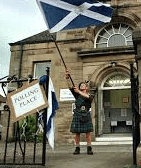- Return to sender - 20th February 2026
- Legal eagle - 19th February 2026
- Round Robin - 19th February 2026
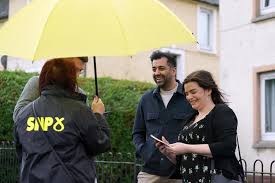
The day after a poll in a Scottish by-election (Rutherglen and Hamilton West), which Labour won following a slew of alarming revelations about the losing group, the Scottish National Party (SNP), we here re-publish our story about them from last month, showing how it has been beset by problems.
Labour won with a swing from the SNP of 20.4 per cent, showing that the disclosures may have had an effect.
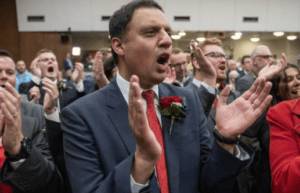
These details have also been partly reported in our piece earlier this week about China.
During 23 years with the BBC, and 40 years in journalism (when he was trained to use simple language, avoiding jargon), political stories have always been central for our Editor, Welshman Phil Parry, so here he looks at the continuing crisis to engulf the Scottish National Party (SNP), amid news now that taxpayers’ money was used to buy yoga classes, a driving test, as well as multiple copies of Nicola Sturgeon’s speeches, and the parallels which might be drawn in its support, with the Welsh nationalist party Plaid Cymru (Plaid).

Previously Phil has described how he was helped to break into the South Wales Echo office car when he was a cub reporter, recalled his early career as a journalist, the importance of experience in the job, and made clear that the ‘calls’ to emergency services as well as court cases are central to any media operation.
He has also explored how poorly paid most journalism is when trainee reporters had to live in squalid flats, the vital role of expenses, and about one of his most important stories on the now-scrapped 53 year-old BBC Cymru Wales (BBC CW) TV Current Affairs series, Week In Week Out (WIWO), which won an award even after it was axed, long after his career really took off.

Phil has explained too how crucial it is actually to speak to people, the virtue of speed as well as accuracy, why knowledge of ‘history’ is vital, how certain material was removed from TV Current Affairs programmes when secret cameras had to be used, and some of those he has interviewed.
Earlier he disclosed why investigative journalism is needed now more than ever although others have different opinions, and how information from trusted sources is crucial.
Watching huge political success followed by spectacular downfalls, has always been a mainstay of my journalism.
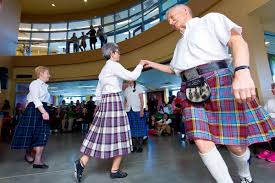
A case in point is what has happened with the Scottish National Party (SNP), and the parallels that might be drawn in its support base, with fellow Welsh nationalist party Plaid Cymru (Plaid).
The chaos inside the SNP is incredible for onlookers to see, and resembles a car crash in slow motion, so Plaid ought to take note, but is unlikely to do so.


We hear, now, that journalistic research has revealed how public money was used by the SNP, to upgrade travel arrangements for then leader Nicola Sturgeon, pay for a party member’s theory driving test, fund yoga classes, and buy multiple copies of books, including a collection of her speeches.
The spree that has been revealed included almost £10,000 on VIP airport upgrades, and more than £32,000 on team-building exercises. Apart from the yoga classes, driving test and books, other purchases by senior staff included nail polish, and £4,182 for hospitality, as well as accommodation at the five-star Gleneagles Hotel in Perthshire. In all £14.2m of taxpayers’ cash was spent by Scottish civil servants in three years.
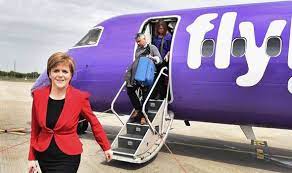
Taxpayer money was also spent on wellington boots “for inspections”, China crockery for a meeting room.
Meanwhile, the ferry system in Scotland appears to have been appallingly badly managed, and given that around 90 inhabited islands rely on ferries this reflects poorly on the SNP’s record in government.
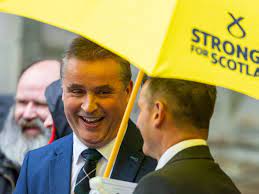
As The Economist has put it: “The SNP’s nationalism has at times eclipsed its competence…polls suggest a mauling for the SNP at the next British general election. The ferry saga has not helped the case for independence-indeed, it makes it likely that voters will toss the SNP overboard”.
This has all come as the SNP was forced to expel one of ITS OWN MPs! Angus MacNeil was suspended from its Westminster group last month.
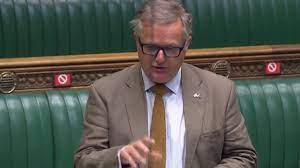
The Na h-Eileanan an Iar (Western Isles) MP had been suspended after reportedly clashing with party chief whip Brendan O’Hara. He was kicked out after a breach of their ‘code of conduct’. Mr MacNeil said he would stand as an independent candidate at the next General Election.
The backdrop is incredible, because it comes hard on the heels of an extraordinary police investigation, following allegations of fraud, and an unbelievable leadership election campaign, in which a leading contender said that in line with her religious beliefs she opposed gay marriage.
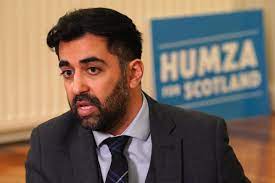
Worrying details about the leadership election would have been enough to sink most parties, and as Sky News described it: “The contest has been bitter and fractious with the candidates, two of whom are serving cabinet ministers, trashing and attacking their own government’s record”.
The winner was the Scottish health secretary Humza Yousaf, but it is doubtful he will set alight the cause of independence, and has been described in The Times as a “lightweight”, and a “complete chancer”.
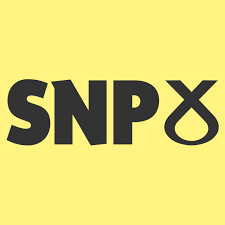
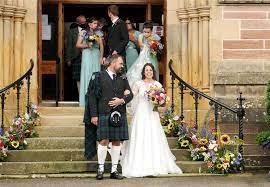
Mr Yousaf (or Yusaf or Yusuf), has been dogged by controversy in the past, and there have been accusations that he ‘blatantly manufactured anti-SNP narrative’. In The Sunday Times (ST), he was called a “serially unsuccessful cabinet minister”.
The campaign of the Scottish cabinet secretary for finance, Kate Forbes, all but imploded, after she said she opposed gay marriage. On children born out of wedlock she proclaimed: “That’s choices they (the parents presumably!) have made”. Ms Forbes is a member of the Free Church of Scotland, and takes the Church’s teachings on these matters very seriously, but was still described in an ST headline as a “leadership favourite”. She also had support in some of the other churches north of the border: The Free Presbyterian Church of Scotland, The Free Church of Scotland (Continuing), The United Free Church of Scotland, The Reformed Presbyterian Church of Scotland and The Associated Presbyterian Churches.
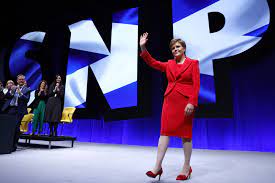
The SNP had been turned into a highly-successful, centralised, election-winning machine under Ms Sturgeon, before things changed totally. Members were prepared to accept her iron discipline (she was elected as leader unopposed in 2014, and the recent competition to take over was the party’s first contested election since 2004) as long as she kept winning, but the simmering underlying tensions have now burst fully into view, and this could be a lesson for Plaid. It is obvious the SNP is in COMPLETE turmoil, damaging hugely the cause of independence, and this, too, is something Plaid must confront.
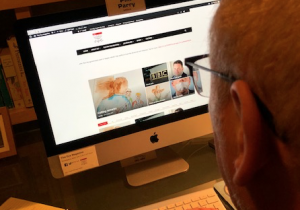
Let’s look again at what journalists, and in particular The Economist, say of the situation today: “A revolution is tearing through the Scottish National Party (snp), which has governed Scotland since 2007. The extent of the party’s disarray is stunning…The scale of preference falsification during the leadership of Nicola Sturgeon is now on full display…”.
The party’s Chief Executive Peter Murrell, who is married to Ms Sturgeon, was forced to resign in the face of a no-confidence vote, and the membership of the SNP fell by 30,000 in just OVER A YEAR! Meanwhile, the police investigated how party funds were used. Mr Murrell had been accused of undermining the leadership contest to replace his wife as party chief and first minister, following a damaging secrecy row.
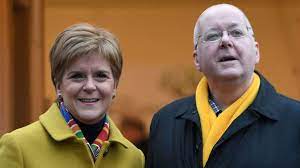
This came in the wake of the SNP’s head of communications also quitting after it emerged he had inadvertently provided bogus membership numbers to a journalist. Murray Foote was told to deny reports the party had lost those thousands of members branding them “inaccurate” and “drivel”.
The astonishing events were described as a “crisis” in the ST, and amid all of this, a poll showed that support for independence had plunged to 39 per cent.
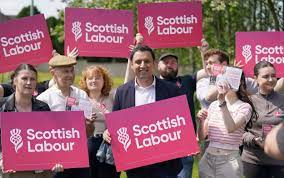
The beneficiaries in Scotland may be the SNP’s fierce rivals, Labour, which once held sway north of the border. In 2010 it had 41 of Scotland’s current 59 seats in Westminster. After the independence referendum in 2014, Labour haemorrhaged support, and in 2019 it was all but wiped out, managing to hold just one seat. It now hopes for a revival that could help it win a General Election (GE) that must be held no later than January 2025.
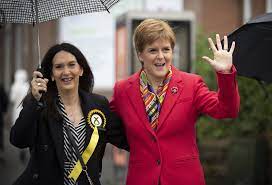
The first real test comes when Rutherglen and Hamilton West holds a by-election in October.
The vote was triggered two years ago, when Margaret Ferrier, a former SNP MP, took a train from London to Glasgow even though she had tested positive for Covid-19.
The amazing spectacle we have witnessed, reflects the fact that the SNP (like Plaid), is the broadest of broad churches. Their membership ranges from dotty dreamers obsessed with Bonnie Prince Charlie, and anti-Englishness (who hold socially conservative views), to liberals (like Ms Sturgeon) who support gay marriage, and accept gender re-allignment.

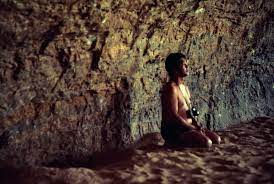
Take out the bits about ‘Bonnie Prince Charlie’, as well as ‘Ms Sturgeon’, and this could apply equally well to Plaid.
I have had a conversation with a long-standing Plaid supporter, who is deeply against homosexuality, and even believes that lesbianism DOESN’T ACTUALLY EXIST!!
He represents a section of his party which is on the left economically (possessing a strong belief in nationalisation), but is extremely conservative socially.
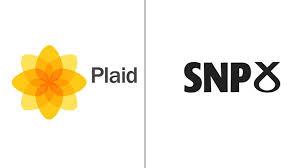 Another wing of Plaid (as with the SNP), wants independence from England in a socialist republic, socially liberal laws, and (in a way I have never really understood) to rejoin the European Union (EU).
Another wing of Plaid (as with the SNP), wants independence from England in a socialist republic, socially liberal laws, and (in a way I have never really understood) to rejoin the European Union (EU).
Unlike for its fellow party (the SNP), devolution did not galvanise the cause of independence in Wales, and Plaid has never properly broken out of its language strongholds in the West and the North West, into the South Wales valleys at the level of the Welsh Assembly (WA)/Welsh Parliament (WP)/Senedd Cymru (SC), (the party can only point to a couple of examples, but it YEARNS to do so!).
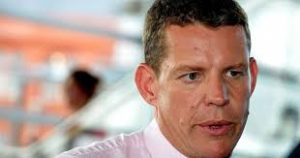
It is the job of the newish Plaid leader Rhun ap Iorwerth, MS, to hold the two wings of his fractious party together. But uniting around a form of independence may not be enough for them – these two views within Mr ap Iorwerth’s party are simply too far apart.
Perhaps he could do with yoga classes to help him come to terms with this. As long as he doesn’t charge it to the taxpayer that is!
Maybe Mr Yousaf needs to take up yoga too, after yesterday’s result…

Details including political stories like these by Phil, as he was gripped by the rare neurological condition Hereditary Spastic Paraplegia (HSP), have been released in a major book ‘A GOOD STORY’. Order it now!
Regrettably publication of another book, however, was refused, because it was to have included names.








